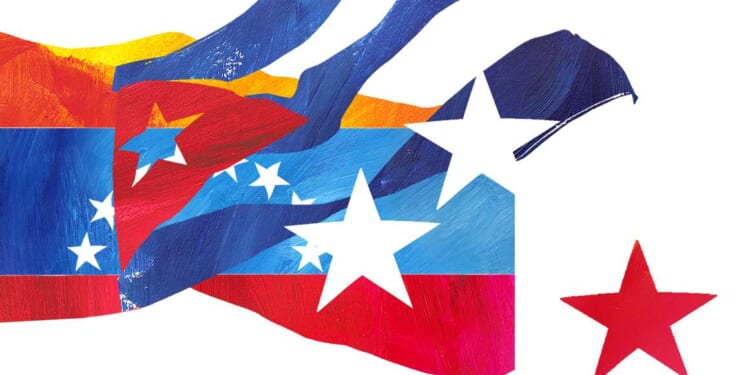“Under my administration, we have taken decisive action to stand with the good people of Cuba and Venezuela,” President Donald Trump said at the White House in 2017. “The same failed communist ideology that has brought oppression to Cuba has brought nothing but suffering and misery everywhere and every place it has been anywhere in the world. Communism is the past. Freedom is the future.”
Communism should indeed be a thing of the past—but a recent immigration policy from Trump’s second administration threatens to trap its victims there.
Consider the case of a man identified in court filings as M.A.R., a political dissident from Cuba who came to the United States legally in 2024. A ruling from the U.S. District Court for the District of Columbia outlined that he faced “threats, harassment, and retaliation from Cuban authorities” for his views. He was granted humanitarian parole, obtained work authorization, and married a U.S. citizen. He has no criminal record.
But when M.A.R. attended an immigration hearing in May 2025, he was detained by Immigration and Customs Enforcement officers afterward, though he had met the legal obligations of his parole and his asylum case had not been dismissed. He soon found out, according to his attorney, that the government would subject him to expedited removal—a fast-track proceeding with a much less robust process, including no hearing in front of a judge.
That quicker process has typically been limited to people arrested crossing the U.S.-Mexico border. But the Trump administration expanded it in January to apply to humanitarian parolees. In doing so, the government exceeded its statutory authority, ruled Judge Jia Cobb of D.C.’s federal district court in August, temporarily barring the Department of Homeland Security from executing fast-track deportations for migrants admitted to the U.S. on humanitarian grounds.
In that same speech from 2017, Trump singled out another country: We “stand with the people of Venezuela, who are suffering under the ruthless socialism of the Maduro regime,” he said. “We reject socialist oppression.”
Those remarks—which reflect his longstanding rhetorical antipathy to socialism—are puzzling in the context of another individual mentioned in the decision, R.J.L.B., a Venezuelan military officer who came to the U.S. legally. The Venezuelan government, he says, is surveilling him and his family. He too was arrested this year after an immigration proceeding and set for a fast-track return to Venezuela, notwithstanding that he believes he will be killed for desertion if forced to return. It’s a strange way for the Trump administration to “reject socialist oppression.”

















